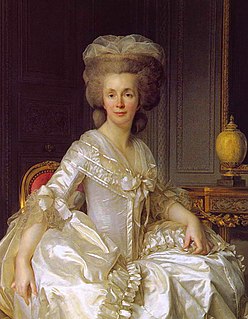A Quote by Honore de Balzac
How sternly we reproach virtue for its failings, how indulgent we are to the better qualities of vice!
Related Quotes
You do not know how much they mean to me, my friends, And how, how rare and strange it is, to find In a life composed so much, so much of odds and ends, (For indeed I do not love it ... you knew? you are not blind! How keen you are!) To find a friend who has these qualities, Who has, and gives Those qualities upon which friendship lives. How much it means that I say this to you- Without these friendships-life, what cauchemar!
If a man of good natural disposition acquires Intelligence [as a whole], then he excels in conduct, and the disposition which previously only resembled Virtue, will now be Virtue in the true sense. Hence just as with the faculty of forming opinions [the calculative faculty] there are two qualities, Cleverness and Prudence, so also in the moral part of the soul there are two qualities, natural virtue and true Virtue; and true Virtue cannot exist without Prudence.
Taste and elegance, though they are reckoned only among the smaller and secondary morals, yet are of no mean importance in the regulations of life. A moral taste is not of force to turn vice into virtue; but it recommends virtue with something like the blandishments of pleasure, and it infinitely abates the evils of vice.
I concluded some time ago that a major part of success of a team, or of an individual, has a great deal to do with the intangible qualities possessed. The real key is in how a person see himself (humility), how he feels about what he does (passion), how he works with others (unity), how he makes others better (servanthood), and how he deals with frustration and success, truly learning from each situations (thankfulness). I believe those concepts are the essence of a good player, team, coach, or individual in any capacity in life.







































